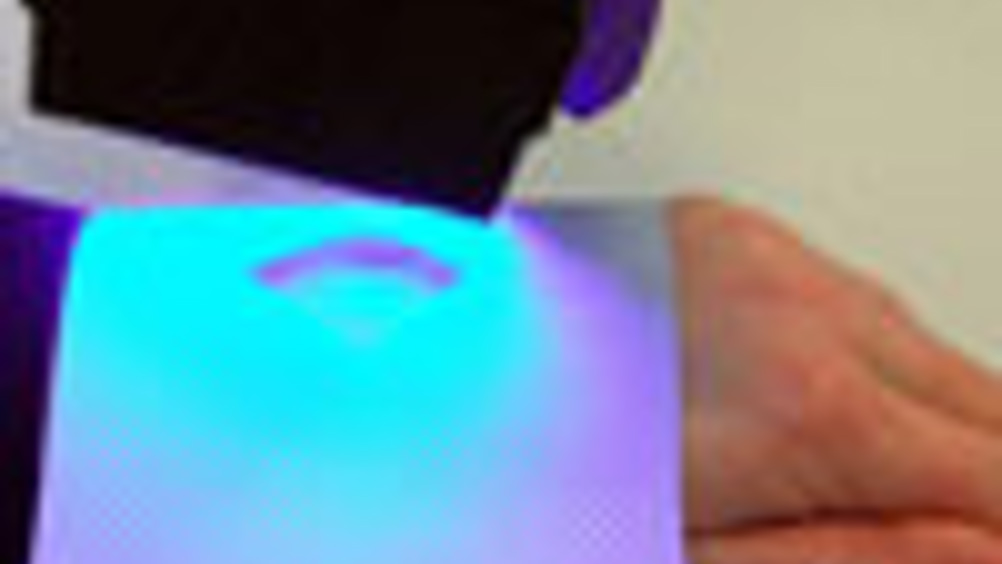Fighting cancer with light

Scientists at Newcastle University have developed a cancer fighting technology which uses ultra-violet light to activate antibodies which specifically attack tumours.
Therapeutic antibodies have long been recognised as having excellent potential but getting them to efficiently target tumour cells has proved to be very difficult.
Now, Prof Colin Self and Dr Stephen Thompson from Newcastle University have developed a procedure to 'cloak' the antibodies which can then be activated by UV-A light and so can be targeted to a specific area of the body by shining a probe at the relevant part.
This procedure maximises the destruction of the tumour while minimising damage to healthy tissue.
The researchers have demonstrated that they can coat the surface of a protein, such as an antibody, with an organic oil which is photocleavable. This prevents the antibody reacting within the body unless it is illuminated.
When UV-A light is shone onto the cloaked antibody, it is activated. The activated antibody binds to T-cells, the body’s own defence system, triggering the T-cells to target the surrounding tissue. When the cloaked antibodies are activated by light near a tumour, the tumour is killed.
Register now to continue reading
Thanks for visiting The Engineer. You’ve now reached your monthly limit of news stories. Register for free to unlock unlimited access to all of our news coverage, as well as premium content including opinion, in-depth features and special reports.
Benefits of registering
-
In-depth insights and coverage of key emerging trends
-
Unrestricted access to special reports throughout the year
-
Daily technology news delivered straight to your inbox










BEAS funding available to help businesses cut energy costs
And not a moment too soon, if the following exchange broadcast last Friday 13th June, on the Radio 4 ´Rare Earth´ program (link below, ~ 17 minutes...